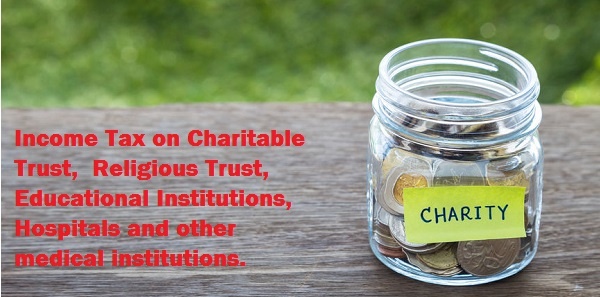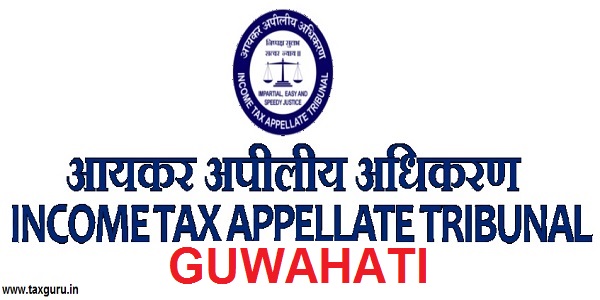Budget 2020: Re-obtaining Of Registration under Section 12AA & Approval under Section 10(23C) & Section 80G by Existing Registered / Approved Entities – Concerns and Issues
Introduction: The income of the charitable / religious trusts, institutions, universities, educational institutions, hospitals, other medical institutions etc. etc. which are registered U/s. 12AA or approved U/s. 10(23C) of the Income Tax Act is exempt from tax. Similarly, the donors granting donations to the institutions, funds etc. approved U/s. 80G gets deductions for that. The provisions relating to above registration / approval for tax exemption / deductions are on the statute since long time. Over this long period large no. of institutions have got approved / registered. The registration / approval originally granted to them under existing law was without any expiry period (though may be cancelled in specific situations).
Now, the Finance Bill, 2020 has proposed a new regime for these institutions. According to that the registration / approval shall be given only for the limited period of 5 years. The new regime is also proposed to be made applicable to the existing registered / approved institutions. To bring the already registered / approved institutions under the new regime, it has also been proposed that the existing registration / approval will not be effective now and these institutions will also be required to re obtain registration / approval under new provisions. The new regime is proposed to be applicable w.e.f. 01st June, 2020.
There are various issues / concerns / practical problems regarding re obtaining of the registration / approval by the existing registered / approved entities. In this article, an attempt has been made to discuss those issues, concerns etc. These have been discussed in the succeeding paras.

Page Contents
- 1. No Detailed Enquiry To Be Made Before Grant Of Registration / Approval To Entities Registered Under The Existing Law:
- 2. Relevant provisions of amended section 10(23C), section 12 and section 80G
- 3. Despite No Detailed Enquiries, Severe Problems May Arise:
- 4. Duplicate Work For Entities Who Have Been Recently Granted Registration / Approval:
- 5. The Cases Where Registration / Approval Has Been Rejected But May Be Granted Later By Appellate Authorities :
- 6. Very Short Time Limit For Applying For Re Registration / Approval:
- 7. Other Articles Related To The Present Topic:
1. No Detailed Enquiry To Be Made Before Grant Of Registration / Approval To Entities Registered Under The Existing Law:
From the amended provisions, it appears that for re obtaining of the registration / approval under the new law, the existing approved / registered institutions may have to make only application. They may not have to face the lengthy proceedings and enquires. The amended provisions propose that no detailed enquiry is to be made by the PCIT/CIT for grant of re registration to the entities already registered under the existing provisions. On receipt of application for re registration, the PCIT/CIT is required to directly pass the order of registration without any detailed enquiry. The provision for detailed enquiries have been made only in respect of renewal of registration under new law after expiry of 5 years’ period and in the cases of conversion of provisional registration / approval (under new law) in to full / final registration / approval.
2. Relevant provisions of amended section 10(23C), section 12 and section 80G
In this regard, the relevant provisions of amended section 10(23C), section 12 and section 80G are reproduced hereunder:
Section 10(23C) :
“Provided further that the Principal Commissioner or Commissioner, on receipt of an application made under the first proviso, shall,—
(i) where the application is made under clause (i) of the said proviso, pass an order in writing granting approval to it for a period of five years;” (emphasis supplied by us)
(ii) where the application is made under clause (ii) or clause (iii) of the said proviso,–
(a) call for such documents or information from it or make such inquiries as he thinks necessary in order to satisfy himself about— “
Section 12AB :
“12AB. (1) The Principal Commissioner or Commissioner, on receipt of an fresh application made under clause (ac) of sub-section (1) of section 12A, shall,—
(a) where the application is made under sub-clause (i) of the said clause, pass an order in writing registering the trust or institution for a period of five years; (emphasis supplied by us)
(b) where the application is made under sub-clause (ii) or sub-clause (iii) or sub-clause (iv) or sub-clause (v) of the said clause,–
(i) call for such documents or information from the trust or institution or make such inquiries as he thinks necessary in order to satisfy himself about—“
Section 80G:
“Provided further that the Principal Commissioner or Commissioner, on receipt of an application made under the first proviso, shall,—
(i) where the application is made under clause (i) of the said proviso, pass an order in writing granting it approval for a period of five years; (emphasis supplied by us)
(ii) where the application is made under clause (ii) or clause (iii) of the said proviso,–
(a) call for such documents or information from it or make such inquiries as he thinks necessary in order to satisfy himself about—“
However, the CBDT is required to issue clarification in this regard.
3. Despite No Detailed Enquiries, Severe Problems May Arise:
Though no detailed enquiries are to be made in above cases, but the application may have be examined for its correctness and completeness (i.e., trust deed, bye laws, society / public trust registration certificate, founder list, trustee list etc. in proper format are attached etc.).
There may be large no. of cases which were registered / approved much earlier and are well established but over a period of time founders / original trustees may have expired and the essential documents may not have been passed to the successors. Further, in earlier time, the legal provisions were much lenient as compared to the present time. The original documents prepared at that time may not cater the need of the present time and may not be accepted by the authorities. Therefore, the very old institutions may have to face much difficulties.
4. Duplicate Work For Entities Who Have Been Recently Granted Registration / Approval:
There may be large no. of entities who were granted registration / approval recently in last few years. Asking them to re apply for registration / approval under new law in such a short time is not proper and feasible.
The government intends for renewal of registration / approval in 5 years. Therefore, it is expected that in cases where the time of five years has not elapsed since grant of registration / approval, the application for registration / approval may not be called. In such cases the application may be deemed to have been filed and the registration / approval under new law may be granted suo moto on that basis. This will also reduce the work load on the Department, tax professionals and the institutions.
5. The Cases Where Registration / Approval Has Been Rejected But May Be Granted Later By Appellate Authorities :
There may be many cases where the application for registration / approval under the existing law have been rejected. Presently, they are in appeal before ITAT, High Court etc. Later on, they may be directed to be given registration / approval by the appellant authorities. If such institutions are directed to be given registration / approval by the authorities after the elapse of 3 month’s time for applying for re registration / approval, they may not be able to re apply for registration / approval under the new law with in such time period.
The government is expected to provide resolution for such institutions also. In such cases it may be provided that the time limit of 3 months will be counted from the date of grant of registration / approval in pursuance of order of appellate authority. Alternatively, in such cases also the application may be deemed to have been filed under the new law and the registration / approval under the new law may be suo moto granted thereafter.
6. Very Short Time Limit For Applying For Re Registration / Approval:
There are large no. of already registered / approved institutions for which registration / approval will have to be re obtained. The time limit for applying for the re registration / approval under the new provisions is only three months from the date of coming in to force of the amendment. This time limit is too short. Further the time limit given to PCIT/CIT for passing the order is also too short. They will have to pass the order within three months. This time limit is too short looking to the large no. of cases of existing registered / approved entities.
7. Other Articles Related To The Present Topic:
For detailed conceptual discussion on this topic please refer the other articles of the author (1) Budget 2020 Exemption U/S. 11 And 10(23C) And Approval U/S. 80G For Charitable / Religious Etc. Trusts, Institutions Etc. – An Analysis Of Proposed Amendments) (2) Concerns / Issues As To Proposed Provisional Registration/ Approval U/S. 12AB, 10(23C) & 80G.
CONCLUSION : The government is expected to take reasonable steps so that the shift from old regime to new regime may be made smoothly without any pain and problem to the tax payers.
Disclaimer: The information contained in the above article are solely for informational purpose after exercising due care. However, it does not constitute professional advice or a formal recommendation. The author do not owns any responsibility for any loss or damage caused to any person, directly or indirectly, for any action taken on the basis of the above article.























Pl let me know the form/s to be filled for reobtaining the 12AA and 80G.
Last date of submission 80 G and 12AA reapplication for reregistration?
Sir, can you please guide me for reregistration of charitable trust under new rule we need to upload trust PAN card or PAN and Aadhar of all trustees?
Kindly expedite.
Regards
Ambika Prasad Behera
Very informative and useful.